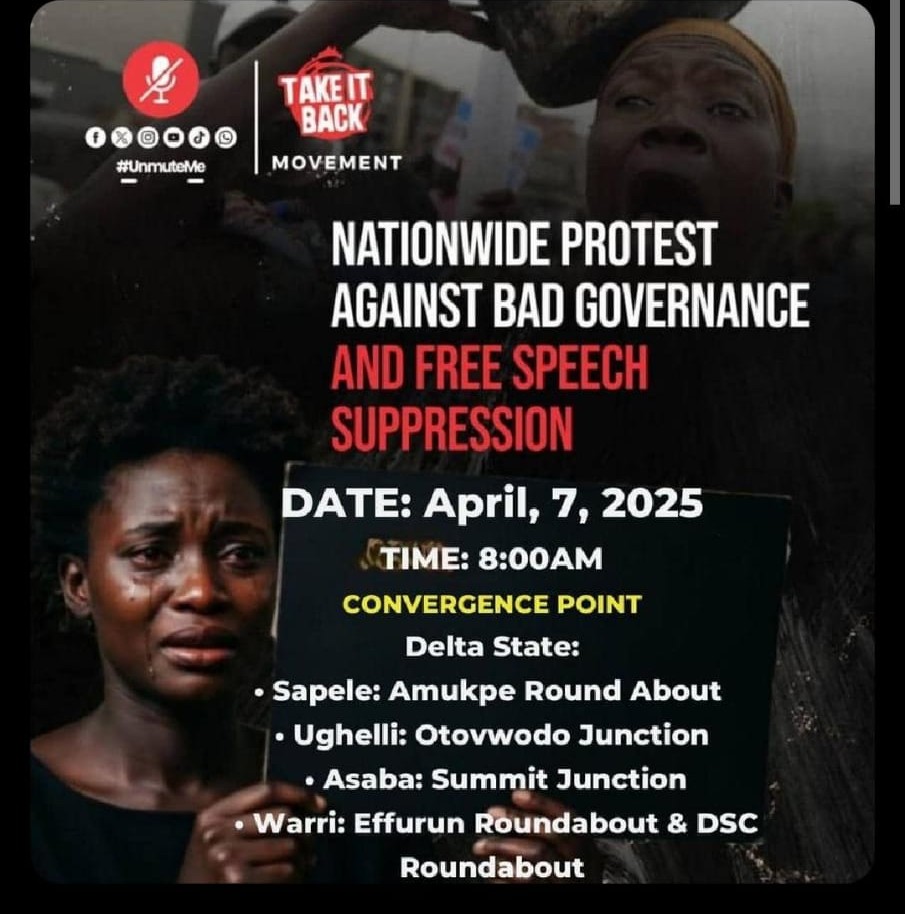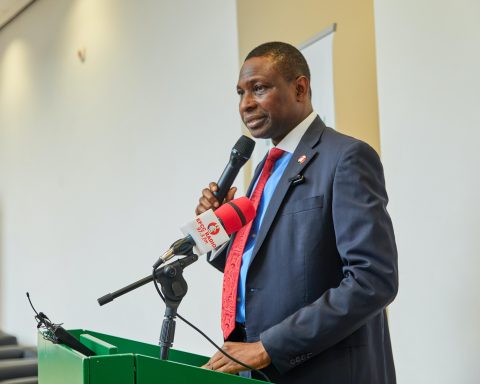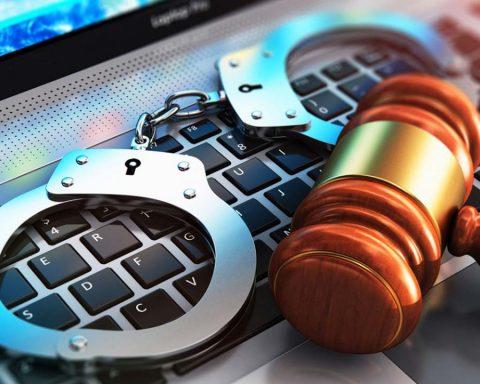A new wave of activism is sweeping across Nigeria, as a group of determined youths prepare to challenge the constitutionality of the Cybercrimes Act, a law that has been criticised for its potential to stifle freedom of expression online and infringe on human rights.
The move, which sparked a national conversation about the delicate balance between cybersecurity and civil liberties, has raised critical questions about the role of government in regulating online activity.
Join our WhatsApp ChannelWith the stage set for a potentially landmark court case, all eyes are on the Nigerian judiciary as it prepares to weigh in on this critical issue.
The administration of President Bola Ahmad Tinubu had faced widespread protests and criticism from Nigerian citizens. The nationwide protests held in August 2024, focused on pressing issues such as the rising cost of living, fuel subsidy removal, increased electricity tariffs, high customs duties, hunger, and insecurity. The country is also grappling with its most severe economic crisis in decades, marked by a 28-year high inflation rate of around 34%.
The latest protest, which is scheduled to be held on Monday, 7 April, is planned to run in various states across the country, including cities like Jos, Bauchi, Port Hacourt, Abuja, and Ibadan among others.
The Take It Back Movement has tagged it “A Nationwide protest against bad governance and free speech Suppression.”

Free speech suppression? Let’s explain
In 2015, Nigeria enacted the Cybercrimes (Prohibition, Prevention, Etc.) Act to establish a comprehensive legal framework for combating cybercrime, covering areas like hacking, identity theft, and cyberstalking, with penalties including imprisonment and fines.
Same year, Nigeria took a crucial step towards combating cybercrime by introducing the Cybercrime (Prohibition and Prevention) Act (the ‘Principal Act’). But, despite its intentions, some parts of the law faced criticism for their misuse and ineffectiveness.
READ ALSO: #EndBadGovernance Protests: 24 Killed, 1,200, Including Minors, Detained – Amnesty Int’l
What is Cybercrime?
Cybercrime is any crime committed with the aid of a computer or network (examples are phishing, bank verification number scams, fraudulent emails, hacking, cyber-harassment, spamming, ATM spoofing, social media hijacking, etc.), which exploits the vulnerabilities of both electronic devices and their users.
Recently, the Federal Government resolved to undertake a comprehensive review of the Cybercrimes Act to enhance its effectiveness and address emerging threats. This review birthed the Cybercrime (Prohibition, Prevention, etc.) (Amendment) Act, 2024.
One of the Organizers, Village Headmaster @HM_HeadMaster
took to his X account to seek solidarity via a post “Majority of Nigerians are not cowards; we just need to be more organised against our Oppressors and suppressors and beyond #April7Protest
Solidarity Forever, We Shall always fight for our rights, which are Freedom and Justice”.


Criticism of the Act
Many youths have expressed criticism over the Cyber Crime Act due to concerns over its potential for misuse and its perceived overreach. Some of the key reasons for their dissatisfaction include:
Freedom of Expression Concerns: The act is often seen as a threat to freedom of speech, especially on social media platforms. Young people are particularly active online and fear the law may be used to stifle legitimate criticism of the government or public figures, leading to censorship.
Vague and Overly Broad Provisions: Some provisions of the law are seen as vague or poorly defined, which creates uncertainty about what actions could be deemed illegal. This ambiguity allows for potential abuse, as individuals may face legal action for activities they didn’t realize were illegal.
Harsh Penalties: The act sometimes imposes severe penalties, such as heavy fines or long prison sentences, for relatively minor offenses. This is viewed as disproportionate by many youths, who believe that the consequences don’t match the severity of the crime.
Impact on Youth Employment and Innovation: Some young people see the law as a potential barrier to creativity and innovation, particularly in tech-related fields. They worry that young entrepreneurs or tech-savvy individuals might be unfairly targeted or discouraged from pursuing digital ventures.
READ ALSO: How Growing Youth Involvement In Cybercrimes Impacts Human Capital Development
Surveillance and Privacy Concerns: The act often includes provisions related to monitoring online activity, which raises concerns about privacy. Many young people feel that their personal data and online activities could be unduly scrutinized without sufficient safeguards.
These concerns highlight the tension between ensuring cybersecurity and protecting individual freedoms, which is a central issue in many discussions about the Cyber Crime Act.
As the protest approaches on April 7, all eyes will be on the government’s response to the concerns raised by the youths. The outcome will likely have significant implications for the future of cybersecurity and free speech in Nigeria.
Amanze Chinonye is a Staff Correspondent at Prime Business Africa, a rising star in the literary world, weaving captivating stories that transport readers to the vibrant landscapes of Nigeria and the rest of Africa. With a unique voice that blends with the newspaper's tradition and style, Chinonye's writing is a masterful exploration of the human condition, delving into themes of identity, culture, and social justice. Through her words, Chinonye paints vivid portraits of everyday African life, from the bustling markets of Nigeria's Lagos to the quiet villages of South Africa's countryside . With a keen eye for detail and a deep understanding of the complexities of Nigerian society, Chinonye's writing is both a testament to the country's rich cultural heritage and a powerful call to action for a brighter future. As a writer, Chinonye is a true storyteller, using her dexterity to educate, inspire, and uplift readers around the world.
- Amanze Chinonye
- Amanze Chinonye
- Amanze Chinonye
- Amanze Chinonye
- Amanze Chinonye
- Amanze Chinonye
- Amanze Chinonye
- Amanze Chinonye
- Amanze Chinonye
- Amanze Chinonye
- Amanze Chinonye
- Amanze Chinonye
- Amanze Chinonye
- Amanze Chinonye
- Amanze Chinonye
- Amanze Chinonye
- Amanze Chinonye
- Amanze Chinonye
- Amanze Chinonye
- Amanze Chinonye
- Amanze Chinonye
- Amanze Chinonye
- Amanze Chinonye
- Amanze Chinonye
- Amanze Chinonye
- Amanze Chinonye
- Amanze Chinonye
- Amanze Chinonye
- Amanze Chinonye
- Amanze Chinonye
- Amanze Chinonye
- Amanze Chinonye
- Amanze Chinonye
- Amanze Chinonye
- Amanze Chinonye
- Amanze Chinonye
- Amanze Chinonye
- Amanze Chinonye
- Amanze Chinonye
- Amanze Chinonye
- Amanze Chinonye
- Amanze Chinonye
- Amanze Chinonye
- Amanze Chinonye
- Amanze Chinonye
- Amanze Chinonye
- Amanze Chinonye
- Amanze Chinonye
- Amanze Chinonye
- Amanze Chinonye
- Amanze Chinonye
- Amanze Chinonye
- Amanze Chinonye
- Amanze Chinonye
- Amanze Chinonye
- Amanze Chinonye
- Amanze Chinonye
- Amanze Chinonye
- Amanze Chinonye
- Amanze Chinonye
- Amanze Chinonye
- Amanze Chinonye
- Amanze Chinonye
- Amanze Chinonye
- Amanze Chinonye
- Amanze Chinonye
- Amanze Chinonye
- Amanze Chinonye
- Amanze Chinonye
- Amanze Chinonye
- Amanze Chinonye
- Amanze Chinonye
- Amanze Chinonye
- Amanze Chinonye
- Amanze Chinonye
- Amanze Chinonye
- Amanze Chinonye
- Amanze Chinonye
- Amanze Chinonye
- Amanze Chinonye
- Amanze Chinonye
- Amanze Chinonye
- Amanze Chinonye
- Amanze Chinonye
- Amanze Chinonye
- Amanze Chinonye
- Amanze Chinonye
- Amanze Chinonye
- Amanze Chinonye
- Amanze Chinonye
- Amanze Chinonye
- Amanze Chinonye
- Amanze Chinonye
- Amanze Chinonye
- Amanze Chinonye
- Amanze Chinonye
- Amanze Chinonye
- Amanze Chinonye
- Amanze Chinonye
- Amanze Chinonye
- Amanze Chinonye
- Amanze Chinonye
- Amanze Chinonye
- Amanze Chinonye
- Amanze Chinonye
- Amanze Chinonye
- Amanze Chinonye
- Amanze Chinonye
- Amanze Chinonye
- Amanze Chinonye
- Amanze Chinonye
- Amanze Chinonye
- Amanze Chinonye
- Amanze Chinonye
- Amanze Chinonye
- Amanze Chinonye
- Amanze Chinonye
- Amanze Chinonye
- Amanze Chinonye
- Amanze Chinonye
- Amanze Chinonye
- Amanze Chinonye
- Amanze Chinonye
- Amanze Chinonye
- Amanze Chinonye
- Amanze Chinonye
- Amanze Chinonye
- Amanze Chinonye
- Amanze Chinonye
- Amanze Chinonye
- Amanze Chinonye
- Amanze Chinonye
- Amanze Chinonye
- Amanze Chinonye
- Amanze Chinonye













